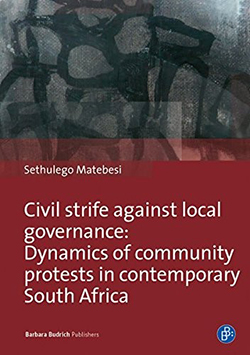Latest News Archive
Please select Category, Year, and then Month to display items
04 April 2024
|
Story Lunga Luthuli
|
Photo SUPPLIED
 Dr Juliet Kamwendo champions gender-inclusive climate action in Africa. Her expertise at the recently held AFR100 workshop highlighted vital steps towards sustainable and equitable development.
Dr Juliet Kamwendo champions gender-inclusive climate action in Africa. Her expertise at the recently held AFR100 workshop highlighted vital steps towards sustainable and equitable development.
Dr Juliet Kamwendo, Lecturer and Programme Director for Gender Studies in the Centre for Gender and Africa Studies at the University of the Free State, is spearheading efforts to integrate gender considerations into Africa's climate restoration agenda. Reflecting on her involvement, Dr Kamwendo stated, "This is particularly crucial, as women make up almost 50% of the population in Africa, and the depletion and degradation of land affect them disproportionately."
She recently served as a gender expert at the AUDA-NEPAD AFR100 workshop in Ouagadougou, Burkina Faso, from 25 to 29 March 2024. This initiative aims to restore forests and degraded land across Africa by 2030, with a focus on gender equality.
The workshop emphasised the integration of gender perspectives into the AFR100 project, acknowledging the disproportionate impact of land degradation on women. Dr Kamwendo's expertise highlighted the need to empower women in climate change interventions, addressing existing gender inequalities exacerbated by environmental degradation.
“Women – who are primarily responsible for household food security and water provision – bear the brunt of environmental degradation, leading to increased workloads, reduced income opportunities, and heightened vulnerability to climate-related disasters. Furthermore, the loss of forest cover and biodiversity further exacerbates the challenges faced by women, particularly in rural areas where they depend heavily on natural resources for their livelihoods,” added Dr Kamwendo.
Her participation highlights academia's crucial role in fostering inclusive and sustainable development, emphasising interdisciplinary collaboration to tackle complex environmental challenges. Through initiatives such as AFR100, stakeholders are working towards a more resilient and gender-responsive future for Africa.
Valour inspires book on community protests
2016-10-18

The cover of Dr Sethulego Matebesi’s
book, Civil strife against local governance:
Dynamics of community protests in
contemporary South Africa, that will be
released on 1 November 2016.
Photo: Supplied
Two significant political events: the murder of an unarmed protester, and school children forced out of school sparked the idea to write a book on community protests.
The book, Civil strife against local governance: Dynamics of community protests in contemporary South Africa, by Dr Sethulego Matebesi, gives an academic account of service delivery protests in South Africa.
Research address protests in different communities
“The focus of my book is on community protests directed against municipalities in both predominantly black and white communities,” Dr Matebesi, senior lecturer in the Department of Sociology at the University of the Free State, said. The funding for the book was received from the National Research Foundation and the Erasmus Mundus EU-Saturn Scholarship.
Informs literature on service delivery protests
The struggle against municipalities reaches across geographic and demographic boundaries, but the violent turn of protests in black communities in contrast to white communities has become somewhat of a hegemonic account by scholars. “The book connects the critical issue of community protests with the equally precarious issue of political trust in local government,” Dr Matebesi said. Case studies in the book are indicative of significant shifts in community protest – thus making it timely. Dr Matebesi said: “The book informs the growing literature on community protests and also fills an empirical void by including protesters in residents’ associations.”
“The book is a personal milestone and
the single greatest return on the
sacrifices made over the past 4 years.”
Personal milestone worth the sacrifice
Research was conducted between 2012 and 2015, whereby two case study sites were selected in four provinces to account the different tactics used. “The book is a personal milestone and the single greatest return on the sacrifices made over the past four years,” Dr Matebesi said.